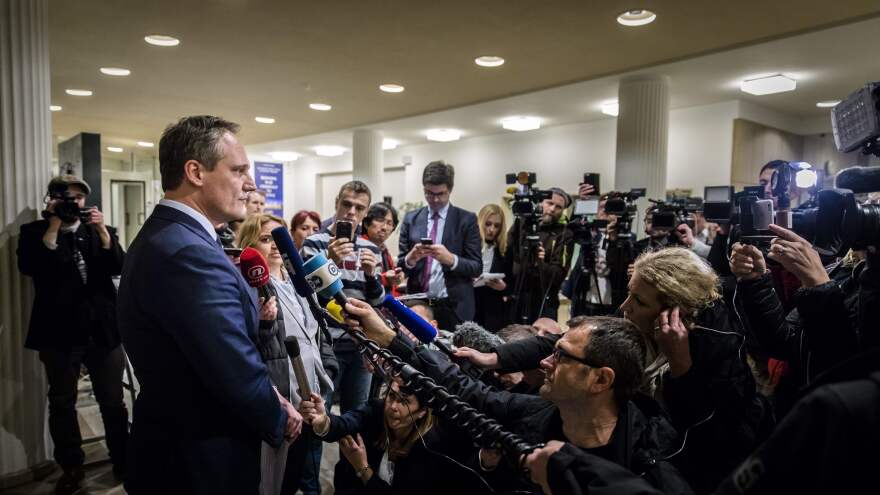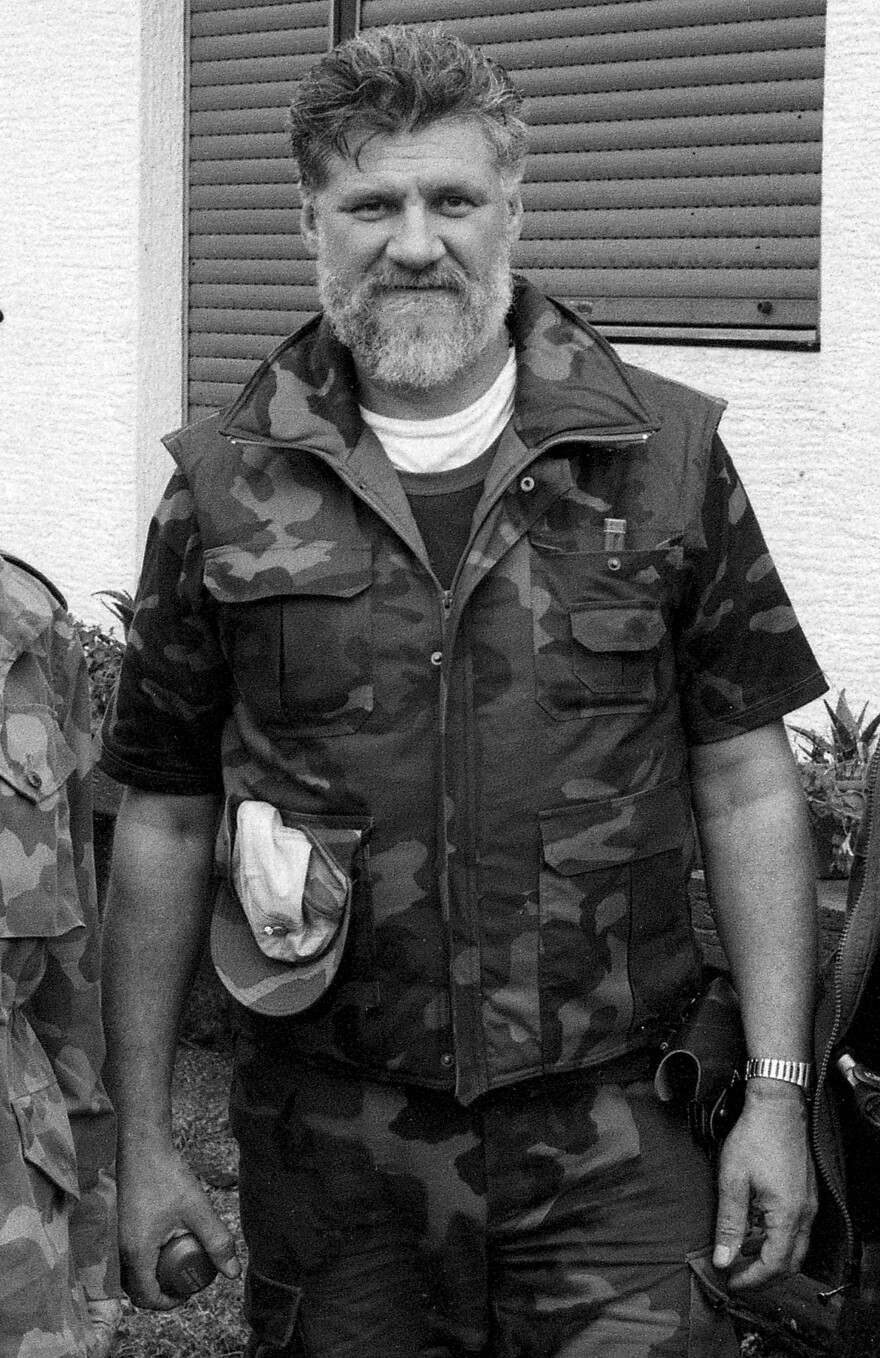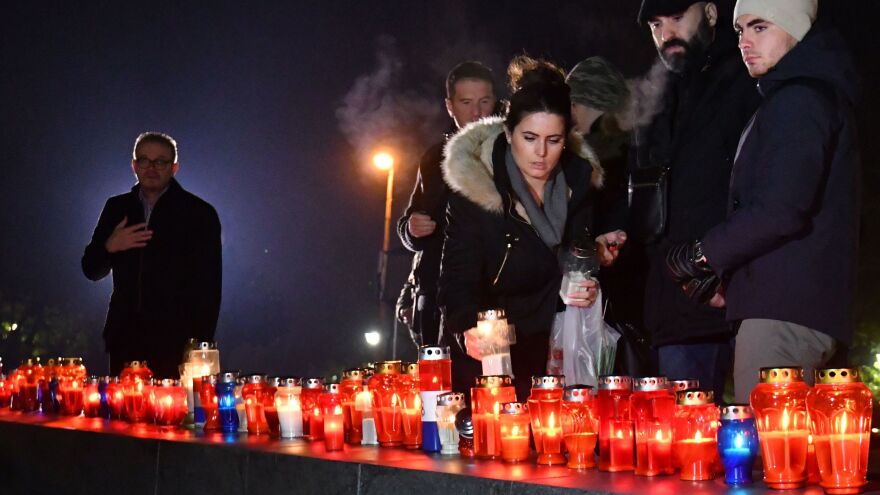It happened in the span of a few confused minutes.
Moments after hearing that his 20-year sentence for war crimes had been upheld, Slobodan Praljak defied the admonitions of his judges, declared his innocence a final time — and with eyes wide, as if shocked himself at what he was doing, put a tiny glass to his lips and gulped deeply. "I just drank poison," he exclaimed after lowering the glass. And the presiding judge asked for the curtains to be closed.
The end came quickly. Praljak died within hours Wednesday. But as Dutch authorities open their investigation into the incident at the international criminal tribunal for the former Yugoslavia, one difficult question promises to persist much longer: How exactly did the former Bosnian Croat general manage to commit suicide in a high-security courtroom in The Hague, Netherlands, and in front of viewers streaming the video live around the world?
There is reason — besides his swift death — to believe Praljak's declaration that he had indeed taken poison.
"There was a preliminary test of the substance in the container and all I can say for now is that there was a chemical substance in that container that can cause death," Dutch prosecutor Marilyn Fikenscher told The Associated Press. That said, the official cause of death will have to wait until an autopsy is completed.

Still, it remains unclear how Praljak managed to acquire that substance and smuggle the vial into the courtroom.
"Anyone could have brought him a bottle of poison easily," Croatian lawyer Goran Mikuličić told CNN's local Balkans affiliate. Defendants such as Praljak were not barred from receiving visitors or medications under the supervision of medical professionals.
In fact, "everyone I spoke with, including attorneys who've worked at the court, were shocked not so much that he could have sneaked this in, because it was very small," reporter Teri Schultz told All Things Considered. "You're checked for electronics. You're checked for things in your pockets. But [the vial] could've gotten through.
"What people are surprised about," Schultz continued, "is that there weren't more measures of prevention taken on this last day of the court, where you knew the whole world was going to be watching, that every precaution wasn't taken to make sure nobody could pull anything like this."
Similar incidents have happened at the tribunal.
Slavko Dokmanovic, who who stood accused of crimes against humanity for the massacre of hundreds of civilian Croats and other non-Serbs in 1991, hanged himself in his cell while awaiting his verdict in 1998. Less than a decade later, Milan Babić also took his own life while in detention in 2006, having already pleaded guilty to war crimes for his role in the ethnic cleansing of non-Serbs in the early '90s.

Praljak, for his part, had been sentenced to prison along with five other men in 2013. A former politician-turned-commander, he was found guilty of crimes similar to those committed by Babić and Dokmanovic — only with a different end: The tribunal found that Praljak had participated in the ethnic cleansing of Muslims in Bosnia and Herzegovina in and around 1993, a campaign of murder aimed at removing non-Croats from parts of the region.
Many Croats, including those at the highest levels of the country's government, have vehemently objected to the court's decision to uphold Praljak's sentence.
"His act, which we regrettably saw today, mostly speaks about a deep moral injustice towards six Croats from Bosnia and the Croatian people," Croatian Prime Minister Andrej Plenkovic said Wednesday, according to Reuters.
"The government expresses deep dissatisfaction and regret over today's verdict," he elaborated in a statement. "Many citations from the verdict fail to respect historical truth and facts, they are unjust and politically unacceptable."
Plenkovic said the Croatian government plans to "consider available legal and political mechanisms to challenge the allegations."

Reuters reports that about 1,000 Croats gathered Wednesday night for a candlelight vigil honoring Praljak in the Bosnian city of Mostar, while a Mass was held for him in a "a packed Catholic cathedral, where churchgoers draped themselves in Croatian flags."
"I came here to support our generals and pay respect to General Praljak who could not bear injustice and made his final verdict," one veteran of the wars of the '90s told the wire service. "He is our pride and hero."
But the response to Praljak's death was far from unanimous in Croatia.
"A lawfully convicted war criminal committed suicide," Croat politician Goran Beus Richembergh wrote on Facebook, according to CNN. "The attempts of the HDZ (Croatian Democratic Union) to instrumentalize the Parliament of Croatia to reject the Tribunal's lawful verdict with a special statement, and to observe a minute of silence for a convicted war criminal, are unacceptable and scandalous."
Copyright 2021 NPR. To see more, visit https://www.npr.org.





